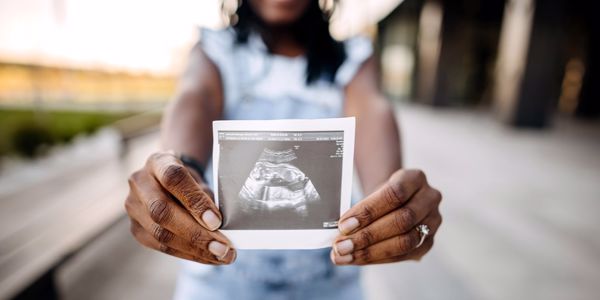Although smoking during pregnancy was once something doctors encouraged, it is now known to have harmful side effects and is not recommended for pregnant individuals. In addition, cigarette tobacco is addictive and can cause someone to smoke even if they no longer want to. Even though vape pens or e-cigarettes have fewer harmful substances than cigarettes, they are still not recommended as safe to use in pregnancy.
When smoking during pregnancy was being encouraged, it was because doctors noticed it helped to keep babies small and birthing parents from gaining much weight. We now know that dieting of any type during pregnancy can harm unborn babies and that other risks come with smoking during pregnancy.
The Harms of Smoking During Pregnancy
One of the things that increases if someone smokes while pregnant is preterm labor, which starts before 37 weeks gestation and can lead to premature birth. Many babies born prematurely have health problems compared to babies born on time.
Another higher prevalence is ectopic pregnancy, when a fertilized egg implants itself somewhere outside the uterus and begins to grow. These pregnancies not only always end in a loss but can also be extremely dangerous for pregnant individuals and often require surgeries. Individuals that smoke during pregnancy are also likely to have more bleeding from the vagina and problems with the placenta, like placental abruption or placenta previa.
Placental abruption is when the placenta separates from the wall of the uterus before birth and can lead to parental or neonatal death and, in some cases, both. Placenta previa is when the placenta lies so low in the uterus that it covers all or part of the cervix or the opening of the uterus, which is a reason for a cesarean section.
Side Effects of Smoking During Pregnancy
Some side effects can impact babies if a birthing parent smokes during pregnancy. Some of these are premature birth, having congenital disabilities like cleft lip or cleft palate, low birth weight of less than 5lbs 8oz, miscarriage or stillbirth, and sudden infant death syndrome or SIDS that occurs after birth through the first year of the baby’s life.
E-Cigarettes and Vape Pens
If an individual smokes e-cigarettes or vape pens, similar harm can come to the baby, and complications can occur during pregnancy. On top of these impacts, someone can also get nicotine poisoning from e-cigarettes, which looks like having a fast or slow heartbeat, belly cramping, breathing problems, headache, and vomiting.
Although there is not much information on the use of e-cigarettes during pregnancy, what we know tells us that it is a good idea to consider quitting while pregnant.
Secondhand and Thirdhand Smoke
Although not nearly as harmful as smoking yourself, secondhand and thirdhand smoke can also be dangerous for a baby. Secondhand smoke is the smoke you might breathe in from someone else’s tobacco product, and thirdhand smoke is the smoke left behind on clothes, furniture, carpet, walls, skin, and hair around someone smoking.
Both are more dangerous after pregnancy when the baby is in infancy. However, secondhand and thirdhand smoke can still lead to low birth weight and congenital disabilities in unborn children. In addition, second and thirdhand smoke increases the risk of SIDS, asthma, bronchitis, ear infections, and pneumonia in infancy and childhood.
Quitting
Although cutting down on smoking is taking a step in the right direction, quitting altogether takes away many of the risks for both pregnancy and baby. The best-case scenario is that a birthing person quits smoking before getting pregnant. However, based on research, stopping or reducing smoking at any point in pregnancy is highly beneficial for a baby.
Quitting smoking or use of e-cigarettes is easier said than done. There are a lot of different techniques and programs to assist in quitting smoking, but what works for each person is very individual. The website smokefree.gov/build-your-quit-plan is an excellent resource for individuals to find a way to quit that will work best for them.
Smokefree.gov also has a text system to text pregnant individuals trying to quit. Some other resources are calling 1-800-QUIT-NOW for advice from a counselor, texting MOM to 222888, and downloading apps like quitSTART or Quit Guide. You can also google to find more local resources, specifically if you feel that you would do better on this journey with support from in-person peers and counselors.
Although quitting smoking can seem daunting, your care providers will do all they can to support you as you go through the process. Even though there can be shame and fear around disclosing actual numbers on how much and how often you are smoking, it is crucial information for your care providers to know so that they can ensure you have the safest birth possible with the right team at your side. You are not alone in this journey; so many individuals want to support you as you go through this process, and your care provider is one of them.






